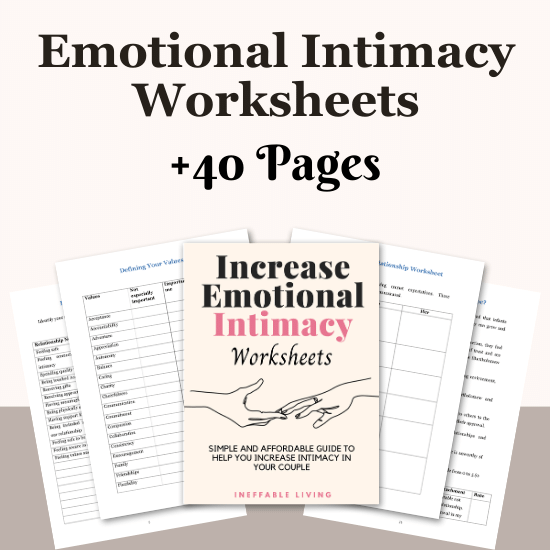A loveless marriage can feel like a silent battle—two people sharing the same space but feeling emotionally disconnected. Whether it’s a slow drift apart, unresolved conflicts, or a loss of intimacy, being in a marriage without love, passion, or connection can be deeply painful.
This guide will help you understand why love fades, recognize the signs of a loveless marriage, and explore ways to survive—or rebuild—your relationship.
Why Does Love Fade in Marriage?
Love doesn’t usually disappear overnight—it fades gradually due to:
Emotional neglect – Partners stop nurturing the relationship, leading to distance.
Resentment buildup – Unresolved conflicts create bitterness and disconnection.
Lack of communication – Conversations become routine, surface-level, or nonexistent.
Stress and life pressures – Work, finances, or parenting take priority over intimacy.
Loss of physical intimacy – Affection, touch, and sex diminish over time.
Personal growth differences – One or both partners change in ways that create emotional distance.
Falling out of love doesn’t mean a marriage has to end—but it does require effort to heal.
Related: How to Fulfill Unmet Emotional Needs?
8 Signs You’re in a Loveless Marriage
- You feel lonely even when your spouse is around.
- Conversations feel transactional (bills, schedules) rather than emotional or meaningful.
- Physical intimacy has significantly decreased or disappeared.
- You don’t feel emotionally safe to express your thoughts, needs, or feelings.
- You feel more like roommates or business partners than romantic partners.
- You fantasize about being single or in another relationship.
- You avoid spending time together because it feels tense or forced.
- There’s no excitement or anticipation about seeing each other.
If several of these resonate with you, your marriage may need attention and healing.
Surviving a Loveless Marriage: What Are Your Options?
You don’t have to accept an unhappy marriage as your fate. Here’s how to navigate a marriage where love has faded:
1. Identify the Core Issue: Why Did Love Fade?
Reflect on when and why the emotional distance started.
Ask yourself:
Was there a specific turning point?
Have we grown apart over time?
Is this a temporary phase or a deeper, long-term issue?
Understanding the cause can help determine if your marriage can be rebuilt or if separation is the healthier choice.
Related: Emotionally Unavailable Husband Quiz
2. Communicate Honestly (Even If It’s Uncomfortable)
Avoid blaming each other—focus on how you feel and what you need.
Start with:
“I feel disconnected, and I don’t want our marriage to continue like this. Can we talk?”
“I miss how we used to be. Do you feel the same?”
If your spouse is unwilling to communicate, consider counseling as a neutral space for discussion.
Even if love has faded, open communication can lead to either reconciliation or a healthy decision about the future.
Related: Best 10 Books On Emotional Unavailability
3. Reignite Emotional & Physical Intimacy
If both partners want to save the marriage, start with small acts of connection:
Daily check-ins – Ask about each other’s day beyond chores and tasks.
Physical touch – Hugs, holding hands, or simple gestures can rebuild closeness.
Shared activities – Try something new together, like a hobby or weekend getaway.
Express appreciation – Compliments and gratitude shift the emotional tone.
Even in long-term marriages, love can be rekindled when both partners commit to reconnecting.
4. Seek Professional Help (If There’s Still Hope)
Marriage counseling can help identify the root causes of disconnection and teach communication strategies.
Individual therapy can help process personal emotions and determine what you truly want.
Sometimes, an outside perspective is necessary to break toxic patterns.
If you both still care but feel stuck, professional guidance can offer new perspectives.
Related: 10 Silent Red Flags In A Relationship To Watch Out For
5. Accept That Some Marriages Can’t Be Fixed
If efforts to reconnect fail and you feel emotionally drained, resentful, or unfulfilled, it may be time to consider:
A trial separation to gain clarity on your needs.
Co-parenting strategies if children are involved.
The possibility of an amicable divorce for both partners’ well-being.
A marriage without love doesn’t always have to end in anger—sometimes, the healthiest choice is letting go.
Staying in a Loveless Marriage vs. Leaving: How to Decide
Staying might be an option if:
✅ You both want to rebuild the relationship and are willing to try.
✅ There are external stressors (finances, kids, health) that make leaving harder, but the marriage itself still has potential.
✅ Love hasn’t fully disappeared, but reconnection needs effort.
Leaving might be the best choice if:
❌ The relationship is emotionally or physically damaging.
❌ There is persistent disrespect, neglect, or emotional abuse.
❌ You feel trapped, hopeless, or like you’re losing your identity.
❌ You’ve tried everything, but there’s no willingness from your partner to change.
Sometimes, choosing your happiness over staying in a broken marriage is the healthiest decision.
Related: Yellow Flags In A Relationship

Final Thoughts: Love Can Be Rebuilt—But Only If Both Partners Try
A loveless marriage doesn’t have to be the end—but it requires effort, honesty, and mutual willingness to change.



